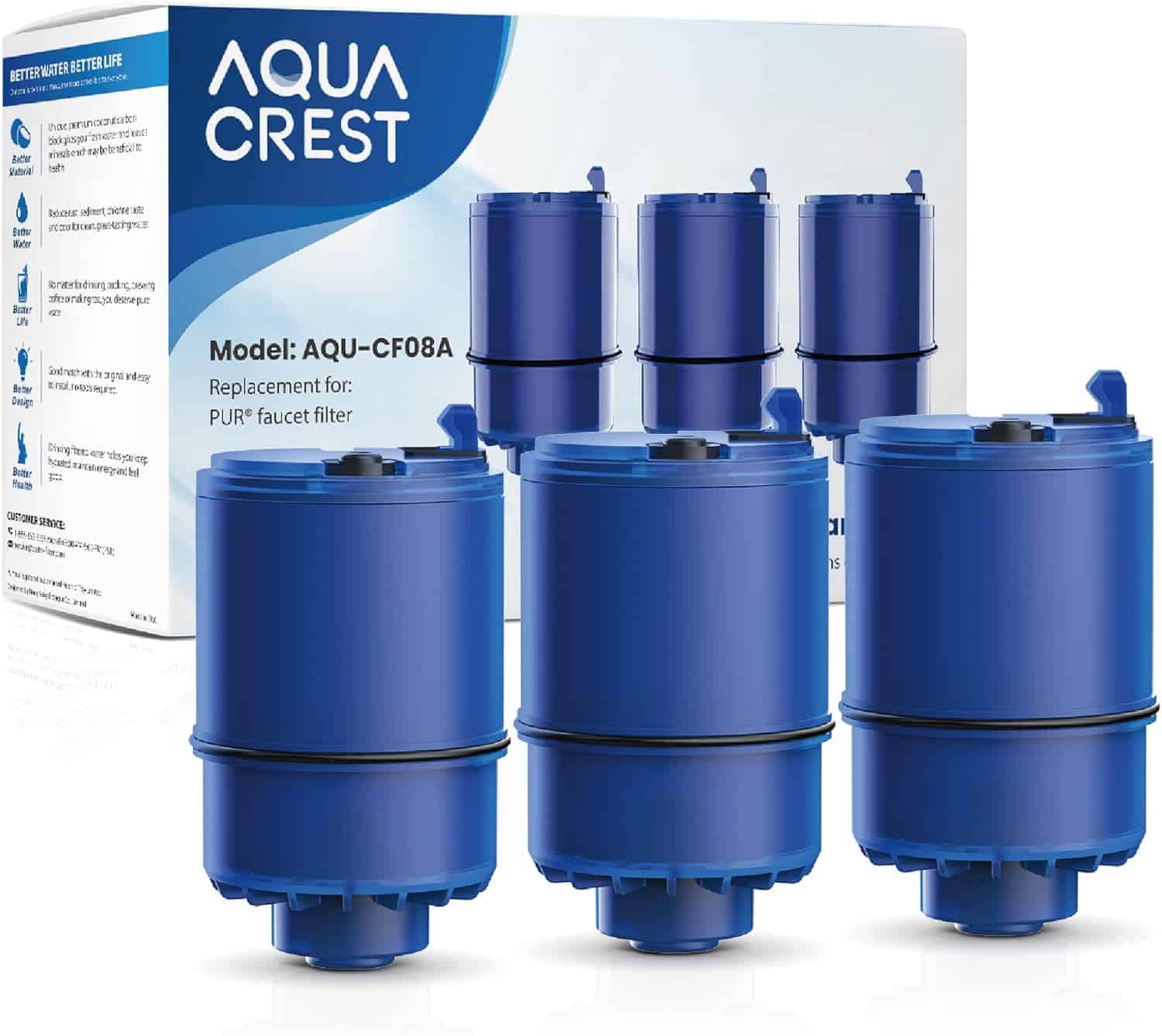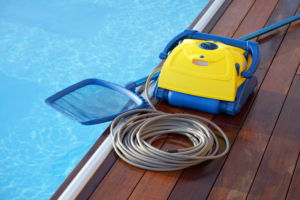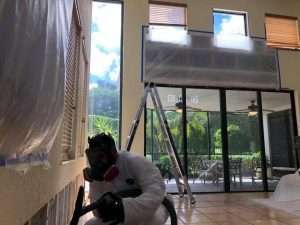Breathe Easy: The 5 Best Dehumidifiers for Basements
“Don’t let a damp basement spoil your home comfort! We understand the struggle of battling excess moisture in basements, and that’s why we’ve researched and compiled a list of the best dehumidifiers perfectly suited to keep your basement dry and enjoyable. Say goodbye to musty odors and hello to a healthier living space with these top-rated dehumidifiers for basements!”
Our Picks for Best Dehumidifiers for Basements
1. Aprilaire E70 Pro Dehumidifier
2. hOmeLabs HME020031N 50-Pint Dehumidifier
3. AlorAir Sentinel Basement Dehumidifier
4. Keystone KSTAD50B Energy Star Dehumidifier
5. Govee Life Smart Dehumidifier for Basement
Pros of Using Dehumidifiers:
- Mold Prevention: Dehumidifiers help maintain optimal humidity levels, preventing mold and mildew growth, which can be harmful to health and property.
- Allergy Relief: By reducing moisture, dehumidifiers create an inhospitable environment for dust mites and allergens, providing relief for allergy sufferers.
- Odor Reduction: Damp and musty odors are eliminated, leaving the air fresh and pleasant.
- Protects Furniture and Belongings: Lower humidity levels protect wooden furniture, electronics, and valuables from damage caused by excess moisture.
- Improves Indoor Air Quality: Dehumidifiers help remove pollutants, improving overall indoor air quality.
- Comfortable Living Environment: Maintaining the right humidity level ensures a comfortable living space, especially during hot and humid weather.
- Energy Efficiency: Energy Star certified dehumidifiers are designed to be energy-efficient, helping save on electricity bills.
- Prevents Condensation: Dehumidifiers reduce condensation on windows and surfaces, preventing potential water damage.
- Dries Wet Areas: After water-related incidents or flooding, dehumidifiers aid in drying out wet areas and promoting faster restoration.
Cons of Using Dehumidifiers:
- Initial Cost: Purchasing a dehumidifier can represent an upfront investment, with more advanced models being pricier.
- Energy Consumption: Dehumidifiers require electricity to operate, which can add to energy costs if used continuously.
- Maintenance: Regular cleaning and maintenance are necessary to ensure the dehumidifier functions optimally and to prevent mold growth in the unit.
- Noise: Some dehumidifiers can produce noise during operation, which might be a concern in quieter living spaces.
- Limited Coverage: Dehumidifiers have specific coverage areas, and using one in large, open spaces may not be as effective.
- Emptying Water Bucket: Non-continuous drainage models require manually emptying the water bucket, which can be inconvenient.
- Space Requirement: Dehumidifiers need space to be placed and shouldn’t be obstructed for optimal performance.
- Dry Air: In extremely dry conditions, dehumidifiers can reduce indoor humidity to levels that may cause discomfort, requiring a humidifier to balance the air.
Unraveling the Basement Dampness Dilemma
Basements are notorious for trapping excess moisture due to their underground location and lack of proper ventilation. This unwanted humidity can lead to a host of problems, including mold growth, musty odors, and potential damage to your property. The best way to tackle this issue head-on is by investing in a high-quality dehumidifier specifically designed to handle basement conditions. Join us as we explore the top five dehumidifiers, each offering unique features to conquer basement dampness and improve your overall living environment.
1. Aprilaire E70 Pro Dehumidifier
The Aprilaire 1820 Pro is a heavy-duty dehumidifier built to combat excessive humidity in large basements. With a remarkable 70-pint daily moisture removal capacity, it can handle even the dampest environments. Its low-temperature operation ensures efficient performance in cooler basement spaces. The unit is designed for seamless integration into your HVAC system, making it a discreet and effective choice for moisture control.
2. hOmeLabs HME020031N 50-Pint Dehumidifier
Once again, the hOmeLabs HME020031N makes an appearance, and for a good reason. This versatile 50-pint dehumidifier is well-suited for medium to large-sized basements. Its auto-defrost feature allows it to work efficiently even in colder temperatures, making it a reliable option all year round. With user-friendly controls and a sleek design, this dehumidifier blends seamlessly into your basement environment.
3. AlorAir Sentinel Basement Dehumidifier
If you’re facing extreme humidity challenges in your basement, the AlorAir Sentinel is a powerhouse designed to take on the toughest moisture problems. Boasting an impressive 120-pint daily moisture removal rate, it’s perfect for large basements and crawl spaces. The unit is energy-efficient and equipped with an automatic humidistat, ensuring it runs only when necessary, saving you both energy and money.
4. Keystone KSTAD50B Energy Star Dehumidifier
For those on a budget but unwilling to compromise on performance, the Keystone KSTAD50B is a fantastic option. With a 50-pint daily moisture removal capacity, it effectively tackles basement humidity at an affordable price point. The electronic controls and LED display make it easy to set your desired humidity level and monitor the unit’s performance. Its compact size allows for convenient placement in your basement.
5. Govee Life Smart Dehumidifier for Basement
The Govee Life Smart Dehumidifier is a feature-rich dehumidifier designed to keep your basement dry and comfortable. With its 50-109 pints daily moisture removal rate and built-in drain pump, you can opt for continuous drainage without manually emptying the water bucket. The unit also includes a convenient digital display, a 24-hour programmable timer, and an automatic defrost function for optimal performance in various conditions.
Installing a Dehumidifier in a Basement
Installing a dehumidifier in a basement can significantly improve the air quality and protect your property. Here are ten essential tips to guide you through the installation process:
- Choose the Right Size: Determine the square footage of your basement to select an appropriately sized dehumidifier. A larger basement may require a higher capacity unit (e.g., 70 or 90 pints), while smaller spaces can be adequately served by a 50-pint model.
- Find the Optimal Location: Place the dehumidifier in a central location in the basement, away from walls and obstructions. This ensures better air circulation and more efficient moisture removal.
- Ensure Proper Clearance: Leave at least 6 inches of clearance around the dehumidifier to allow unrestricted airflow for intake and discharge.
- Check the Drainage Options: Determine if you prefer continuous drainage or manual emptying. If continuous drainage is preferred, ensure a suitable location near a floor drain or install a condensate pump for higher elevation drainage.
- Level the Unit: Use a level to ensure the dehumidifier sits evenly on the floor. This prevents water from pooling on one side and ensures proper drainage.
- Direct the Exhaust Air: Position the dehumidifier so that the exhaust air points away from walls and other objects. This prevents recirculation of warm, moist air and ensures efficient operation.
- Consider Integrated Systems: Some dehumidifiers can be integrated with the home’s HVAC system for seamless operation. If desired, consult a professional for proper installation.
- Connect to a Drainage System: If using a continuous drainage option, connect the dehumidifier’s drainage hose securely to the designated drain or pump. Ensure there are no kinks or blockages in the hose.
- Test the Unit: After installation, test the dehumidifier to confirm it’s operating correctly. Check the settings, humidity levels, and drainage system to ensure everything is functioning as expected.
- Regular Maintenance: Follow the manufacturer’s guidelines for regular cleaning and maintenance. Clean the filter regularly and inspect the unit for any signs of wear or issues. Regular maintenance ensures optimal performance and prolongs the unit’s lifespan.
Frequently Asked Questions (FAQs) about Basement Dehumidifiers:
- What size dehumidifier do I need for my basement?
- The size depends on your basement’s square footage. As a general rule, a 50-pint dehumidifier is suitable for up to 1,000 square feet, while larger spaces may require a 70-pint or 90-pint unit.
- Can I run the dehumidifier continuously?
- Yes, many dehumidifiers have a continuous operation mode for constant moisture removal. Some models come with built-in drain pumps, enabling continuous drainage without manual intervention.
- Are basement dehumidifiers noisy?
- Most modern dehumidifiers are designed to operate quietly. However, noise levels may vary among models, so it’s essential to check product specifications and customer reviews for quieter options.
- Do dehumidifiers remove odors from the basement?
- Yes, dehumidifiers can help reduce musty odors caused by excess moisture. By removing the dampness, they contribute to a fresher and more pleasant environment.
- Are basement dehumidifiers energy-efficient?
- Many dehumidifiers are Energy Star certified and designed to be energy-efficient. Look for models with energy-saving features like auto-shutoff and programmable timers.
- How often do I need to clean the dehumidifier?
- Regular cleaning is essential to maintain optimal performance. Clean the filter every few weeks, and perform a more thorough cleaning every few months, following the manufacturer’s instructions.
- Can a dehumidifier prevent mold growth in the basement?
- Yes, dehumidifiers can help prevent mold growth by maintaining humidity levels below the mold’s threshold for growth (usually below 60%).
- Can I use a dehumidifier in a damp crawl space?
- Yes, many dehumidifiers are suitable for crawl spaces as well. Look for models specifically designed for this purpose.
- Do basement dehumidifiers require professional installation?
- Most basement dehumidifiers are designed for easy installation and can be set up without professional help. However, if you plan to integrate the dehumidifier with your HVAC system, professional assistance might be necessary.
- Can a dehumidifier help with water damage restoration in the basement?
- Yes, dehumidifiers are effective in drying out water-damaged areas and preventing further moisture-related issues.
- Can a dehumidifier handle high humidity levels in the basement during summer?
- Yes, dehumidifiers are designed to handle high humidity levels and are particularly useful during humid summer months.
- Can I use a dehumidifier in a finished basement?
- Absolutely! Dehumidifiers are safe to use in finished basements and can help protect your investments in furniture, electronics, and decor.
- Can I control the humidity level with a basement dehumidifier?
- Yes, many dehumidifiers come with adjustable humidity settings, allowing you to set your desired level for optimal comfort.
- Can a dehumidifier help reduce condensation on basement windows?
- Yes, by maintaining lower humidity levels, dehumidifiers can help reduce condensation on windows and other surfaces in the basement.
- Do basement dehumidifiers come with warranties?
- Yes, most reputable brands offer warranties ranging from one to several years, providing peace of mind and protection for your investment.
Embrace a Dry and Inviting Basement
A dry basement is essential for maintaining a healthy and comfortable living space. Investing in the right dehumidifier tailored for basement use can make all the difference in the world. Each of the top five dehumidifiers we’ve explored offers unique features to cater to different basement sizes and specific requirements.
Remember to consider the size of your basement, the severity of moisture issues, and any additional features that align with your preferences when making your decision. Bid farewell to basement dampness and welcome a refreshed, moisture-free living space with the best dehumidifier for your basement needs!
Disclaimer: As product availability and specifications may change, it’s essential to verify the latest information and read customer reviews before making your final purchase.
Our Picks for Best Dehumidifiers for Basements
1. Aprilaire E70 Pro Dehumidifier
2. hOmeLabs HME020031N 50-Pint Dehumidifier
3. AlorAir Sentinel Basement Dehumidifier
4. Keystone KSTAD50B Energy Star Dehumidifier
5. Govee Life Smart Dehumidifier for Basement
Breathe easy and enjoy your dry, comfortable basement sanctuary!










